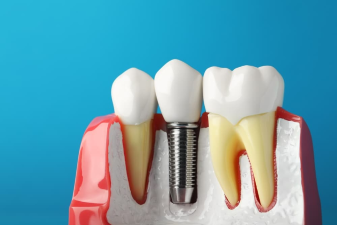Cavities, also known as dental caries, are one of the most common dental issues affecting people of all ages. They occur when the enamel—the hard, protective layer of your teeth—becomes eroded by acids produced by bacteria in the mouth. Cavities can lead to discomfort, pain, and even serious dental issues if left untreated. Fortunately, they are highly preventable with proper dental care and lifestyle choices.

Understanding Cavities
What Causes Cavities?
Cavities form as a result of several factors, primarily:
- Bacteria: Oral bacteria feed on sugars from food and produce acid, which erodes enamel.
- Plaque Buildup: A sticky film of bacteria called plaque develops on teeth. If not removed, it hardens into tartar, leading to further decay.
- Diet: Frequent consumption of sugary and acidic foods increases the risk of cavities.
- Poor Oral Hygiene: Inconsistent brushing and flossing allow plaque to accumulate and harden.
- Dry Mouth: A lack of saliva can reduce the mouth's natural ability to wash away food particles and neutralize acids.
Symptoms of Cavities
Recognizing the signs of cavities early can help in preventing further damage. Common symptoms include:
- Tooth sensitivity to hot, cold, or sweet foods
- Pain when biting or chewing
- Visible holes or pits in teeth
- Staining or discoloration on the surface of teeth
If you experience any of these symptoms, it's crucial to consult a dentist for an evaluation.
Preventive Tips from Dentists
Preventing cavities involves a combination of good oral hygiene practices, dietary choices, and regular dental visits. Here are essential tips from dental professionals.
1. Maintain Good Oral Hygiene
Brushing Techniques
- Brush Twice Daily: Use fluoride toothpaste to brush your teeth at least twice a day, ideally in the morning and before bed. This helps remove food particles and plaque buildup.
- Proper Technique: Use gentle, circular motions and ensure you are brushing for at least two minutes. Pay attention to all surfaces of each tooth—outer, inner, and chewing surfaces.
- Choose the Right Toothbrush: Use a soft-bristled toothbrush that can effectively clean your teeth without irritating your gums. Replace your toothbrush every three to four months or sooner if the bristles are frayed.
Flossing
- Daily Flossing: Floss daily to remove plaque and food particles from between your teeth and along the gum line. This is crucial, as these areas are often missed during brushing.
- Proper Technique: Use about eighteen inches of floss, wrap it around your fingers, and gently slide it between your teeth. Curve it around each tooth, making a C-shape to clean effectively.
2. Adopt a Balanced Diet
Limit Sugar Intake
- Reduce Sugary Snacks: Minimize the consumption of candy, cookies, and sugary drinks, which can contribute to cavity formation. Opt for healthier snacks like fruits, vegetables, and nuts.
- Choose Natural Sweeteners: If you need to satisfy your sweet tooth, consider using natural sweeteners like honey or maple syrup in moderation.
Staying Hydrated
- Drink Water: Water helps wash away food particles and neutralizes acids in the mouth. Choose fluoride-rich tap water whenever possible, as fluoride can strengthen enamel.

3. Use Fluoride
Benefits of Fluoride
Fluoride is a mineral that can help remineralize enamel and make it more resistant to decay. Here’s how to incorporate fluoride into your routine:
- Fluoridated Toothpaste: Choose a toothpaste that contains fluoride and ensure you use it twice daily.
- Fluoride Mouthwash: Consider using a fluoride mouthwash as part of your daily oral hygiene routine for an added layer of protection.
- Fluoride Treatments: Consult your dentist about professional fluoride treatments, especially for children and those at higher risk for cavities.
4. Visit Your Dentist Regularly
Importance of Routine Check-Ups
Regular dental check-ups are key to maintaining oral health and preventing cavities. Dentists can identify potential problems early and provide necessary treatments. Recommendations include:
- Schedule Cleanings: Professional cleanings every six months can remove tartar buildup and provide an opportunity for a thorough examination.
- X-Rays: Periodic X-rays can help detect cavities that are not visible to the naked eye.
Dental Sealants
- Consider Dental Sealants: These are protective coatings applied to the chewing surfaces of back teeth, sealing out bacteria and food particles. They are particularly beneficial for children but can also be used in adults.
5. Special Considerations for Children
Encouraging Good Habits Early
Establishing good dental hygiene habits early in life is crucial for preventing cavities in children. Here are ways to promote oral health:
- Supervise Brushing: For young children, supervise their brushing to ensure they are using proper techniques and not swallowing toothpaste.
- Dental Visits: Schedule the first dental visit by age one. Early visits help detect any issues and familiarize children with the dental environment.
6. Addressing Dry Mouth
Dry mouth can significantly increase the risk of cavities. Here are tips for managing this condition:
- Stay Hydrated: Drink plenty of water throughout the day to keep your mouth moist.
- Chew Sugar-Free Gum: This can stimulate saliva production, aiding in neutralizing acids and washing away food particles.
- Use Saliva Substitutes: Over-the-counter saliva substitutes can help alleviate dry mouth symptoms.
7. Avoiding Tobacco Products
Using tobacco products can have adverse effects on oral health, including an increased risk of cavities and gum disease. Consider the following:
- Avoid Smoking and Chewing Tobacco: Quitting tobacco can significantly improve your oral health and overall well-being.
- Seek Support: If you need help quitting, consider talking to your dentist or health care provider about resources available to you.
The Role of Lifestyle Choices
1. Managing Stress
Stress can lead to behaviors that increase the risk of cavities, such as neglecting oral hygiene or consuming comfort foods. Managing stress through exercise, meditation, or hobbies can help maintain both your mental and dental health.
2. Limiting Snacking
Frequent snacking, especially on sugary or acidic foods, can enhance the risk of cavities. When snacking, choose options low in sugar and acids, and aim to limit snacks to healthier choices like fruits and vegetables.
Conclusion: Your Path to Cavity Prevention
Preventing cavities requires a proactive approach that combines good dental hygiene practices, a balanced diet, regular dental visits, and a commitment to overall health. By following these tips from dental professionals, you can significantly reduce your risk of cavities and enjoy a healthier smile.



